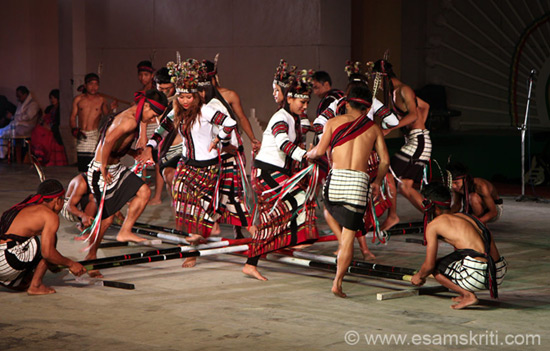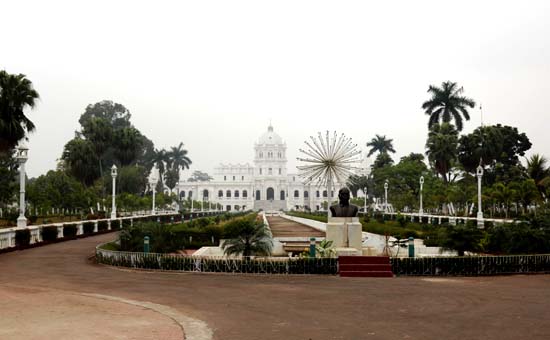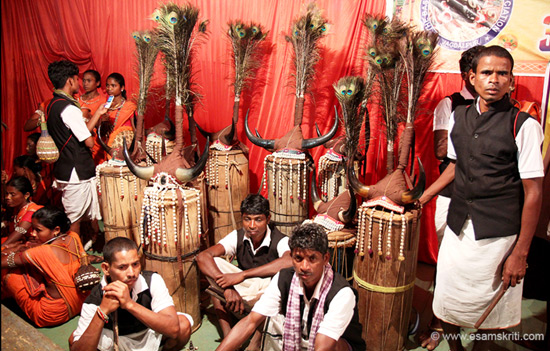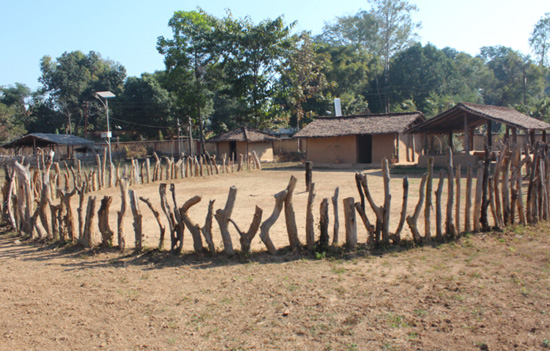- Uttarakhand UCC does not apply to
Scheduled Tribes. This FAQ explores whether ST who convert should continue to
be treated as ST, under Indian laws, or as Jews/Christians/Muslims.
I am happy for Indian Women residing in Uttarakhand (UK). The new UCC
gives them equal inheritance rights and they do not have to share their
husbands with other women. Not to forget the disgusting custom of Nikah Halala.
According to this Indian Express
article, “Nikah halala is a law that requires
a woman to marry and sleep (consummate marriage) with another man in order to
return to her first husband” Simply put, a woman who wishes to return to her husband has to marry, have sexual intercourse with another man and then divorce him.
However, there is a catch in UK UCC-it
does not apply to Scheduled Tribes. This article looks at issues, on an all
India basis, if this provision is made applicable across India. For simplicity,
I am presenting matter as an FAQ.
At the outset must state that I am a
Chartered Accountant, not a lawyer or a Constitutional Law expert. Intent of
article is to provoke thought.
Para 2 of the UK UCC bill reads, “nothing in this Code shall apply to any members of any Scheduled Tribes within the meaning of Clause (25) of Article 366 read with Article 342 of the Constitution of India and the person or group of persons whose customary rights are protected under Part XX21 of the Constitution of India.”
1. What does clause 25 of
Article 366 of the Indian Constitution say?
Clause 25 means such castes, races or tribes or parts of or groups within such castes, races, tribes as are deemed under article 342 to be ST for the purposes of the Constitution.”
Excerpts from Article 342 (1) “The President may be public notification, specify the tribes or tribal communities or parts of or groups within tribes or tribal communities which shall be deemed to be ST for this Constitution.”
2. Under current laws a ST
who converts to Islam or Christianity continues to remain a ST for government
benefits.
Thus, ST converts get benefits of schemes like reservations and exemption from income-tax for northeast ST.” Read on.
According to section 10 (26) of the Income-Tax Act (excerpts), "A member of a Scheduled Tribe, as defined under clause 25 of article 366 of the Constitution, who resides in the States of Arunachal Pradesh, Manipur, Mizoram, Nagaland and Tripura is exempt from paying income-tax on any income which accrues or arises to him in these States.” In
Manipur the Meitie community (Hindus) are liable to pay income-tax whilst
Scheduled Tribes who converted to Christianity do not.
STs get financial benefits too for e.g. according to this state government of Manipur circular, STs get pre-matric scholarship in classes 9 and
10, skill development of ST youth. There must be more benefits. No wonder Kuki
Christians wish to be classified as STs.
After seeing the people of Nagaland at
Hornbill Festival and visiting Mizoram will say they are highly westernised and
anything but tribal.
 The famous Bamboo Dance by the Kuki tribe. Sangai Festival 2014.
The famous Bamboo Dance by the Kuki tribe. Sangai Festival 2014.
 At evening fair during
Hornbill Festival, Kohima. 2014
At evening fair during
Hornbill Festival, Kohima. 2014
Why should a tribal who
has converted to Christianity be considered ST?
 Bust of Ambedkar at entrance of Ujjayanta Palace (Agartala), former
residence of rulers. 2014.
Bust of Ambedkar at entrance of Ujjayanta Palace (Agartala), former
residence of rulers. 2014.
In Tripura,
the former rulers are considered ST. Ace music director, the late R D Burman
was ST. Actress Moon Moon Sen’s husband too belonged to the Tripura Royal Family. Thus, he must be ST. By
patrilineality the Sen daughters, who are successful actresses, are also STs.
Local sources in Manipur state that the
Special Marriages Act applies to Christians. For Kuki tribe all land belongs to
Village Chief. For Naga tribe village common land belong to Village Chief.
However, Nagas can posses own private land.
Read Tax
laws should be the same for all Indian citizens and Who are Scheduled Tribes
So converts need to decide, are they ST
or Muslims/Christians! They cannot be both. Abrahamic
religions do not recognise the very concept of tribes or any other differences
--- they claim to be monolithic as being a consequence of being monotheistic.
This matter
might not have much relevance in UK but is surely of relevance as and when UCC
is introduced by other States and Centre.
According to The Constitution of India by P M Bakshi, “A person who converts to another religion cannot convert ST status. Soosai
vs. Union of India, AIR 1986 SCC 733. (290). This matter needs more study.
3. Having been to Bastar
and attended Bastar Dussehra, can say they are backward though things are
changing.
 Artist of Bison Horn Maria
tribe. Note smart phone left of pic. 2018.
Artist of Bison Horn Maria
tribe. Note smart phone left of pic. 2018.
The amount of money and effort that is
being spent on education (see album Geetham City, Dantewada) ST
might become forward soon.
UCC is not concerned with local customs
for e.g. Muria tribe of Bastar.
 GHOTUL in Museum Jagdalpur, Bastar. Pic 2013.
GHOTUL in Museum Jagdalpur, Bastar. Pic 2013.
In their garden is a sample Ghotul. It
is an institution where unmarried boys and girls spend their nights. This
regulates prenuptial interest of the tribal youths as a training centre to make
them disciplined and good members of the society. Ghotul represents a genuine
centre for developing the human spirit. and deals with some of the
psychological and social problems at a certain stage. Ghotul is found among
Muria tribe of Bastar. First two huts on right and area in front is Ghotul.
Smaller hut to i.e. on its left is Devgudi, where the Devatas and Devis are
kept.
In Rajasthan, the Meena community is
considered ST. They were rulers before the Kachhwaha Rajputs, the last rulers of Jaipur.
4. How British-era laws shape the way we think in post
independence India?
M Gogoi wrote in ThePrint quoting Padma Shree Ganesh Devy, “Does
anybody in India know at all how tribes came up in India? Do any of our Vedas,
Upanishads, Shashtras, Puranas explain how so many of us are castes and why others are tribes?” Ganesh Devy he asked.
A sinister chapter from the colonial playbook, the Criminal Tribes Act (CTA) of 1871 branded entire communities as ‘criminals’, forcing them into demarcated settlements and unpaid hard labour, Devy explained. “Neither varna was created by any law of those times,
nor was jaati created by law, or language, or sects. But a new social category did get created by enactment of law,” Devy said.
This draconian law, he added, drew from Thuggee and Dacoity Suppression Acts of the 1830s, enacted by the East India Company largely to “disarm Indian soldiers”.
Traditional coin-making communities like the Meenas, who are today classified as Scheduled Tribes, were among the victims of the CTA. “The British wanted to take over the function of making coins,” Devy said, and the way to do it was by dubbing “traditional metallurgists” as counterfeiters.
Devy traced the existence of the tribal population to the British “creating their own forest” in India out of autonomous areas that didn’t fall under princely states or in the jurisdiction of the East India Company. “All such places which didn’t come under the state structures in India were declared as a forest by a single legislation,” he said.”
Further, according to this Outlook report, “Thus, while communities like Meenas went from high caste, to "criminal tribe" in the British times to ST, or the Jats who are now OBC, or Gujjars who now want to be STs from OBCs, there are a whole lot of "denotified tribes" (formerly the "criminal tribes" in British times) such as Sansis, Kanjars, Banjaras, Kalandars, Kalbelias who lack the numbers so necessary for a political bargain.”
5. By which law are ST
converts to Christianity in the Northeast governed?
Kerala based senior advocate Sebastian Paul and former Member of Parliament wrote, “Indians Christians are governed by the Indian Succession Act of 1925 in matters of intestate and testamentary succession. Section 3 of the Indian Succession Act gives power to a State Government to exempt any race, sect or tribe from the operation of the Act.”
Local sources in
Manipur say that the Special Marriages Act is used by Kuki Christians to
register their marriages while the Church does the ceremony. For the Kuki tribe
all land belongs to the Village Chief. For the Naga tribe; village common land
belongs to the Village Chief. However, the Nagas can possess their own private
land. In
Arunachal, tribal converts get married under Special Marriages Act or Christian
Marriage Act. This subject requires further study.
In Kerala too, due to
large number of them being Non-resident Indians, the Christians choose to get
married under the Special Marriages Act because foreign embassies insist on a
government issued marriage certificate for allowing spouse to join in the
country of employment.
Why is the Special Marriages Act
preferred instead of the Christian Marriage Act 1872 esp. in Kerala and Manipur?
The answer lies here. According to Section 1 of the Act, “It extends to the whole of India except the territories which, immediately before the 1st November, 1956, were comprised in the States of Travancore-Cochin, Manipur and Jammu and Kashmir.” Why were these regions excluded is beyond the scope of this article.
Read Inheritance Laws for Christian Women in India AND Concerns of northeast tribes to UCC
According to this India Today report, “Tribes and groups that follow matrilineal systems, such as the Khasis, Garo hill tribes of North Eastern India, have expressed concerns that the UCC may impose patriarchal uniformity upon them.” This article also refers to Articles in Constitution w.r.t. each state. The Nairs of Kerala followed matrilineal systems till
the late 1950s.
Now answers to some general questions.
1. Who introduced Muslim
Personal Law in India?
The British introduced The Muslim Personal Law (SHARIAT) Application Act, 1937. It is a three page document. This law was not codified ever. “The things are arranged in a particular or stated manner according to law is known as codification.”
2. Is UCC against
Secularism?
The Constitution does not define the
European word Secularism.
Read Meaning of Secularism And Secularism and Constitution And Secularism in India – Judicial and Constitutional perspective
The crux of the matter, are ST converts
Christians or ST in the eyes of law?
On UK UCC read Understanding the UCC + Key Changes for Hindus and
Muslims in UCC + UCC on Polygamy + UCC Bill Highlights
Also read
1. Ashraafisation of Islam, Give Pasmandas a seat on the
table
2. Comparison of Hindu and Muslim laws of succession – good read
3. Christian Law regarding Marriage and Divorce in India – Christian Marriage Act, 1872